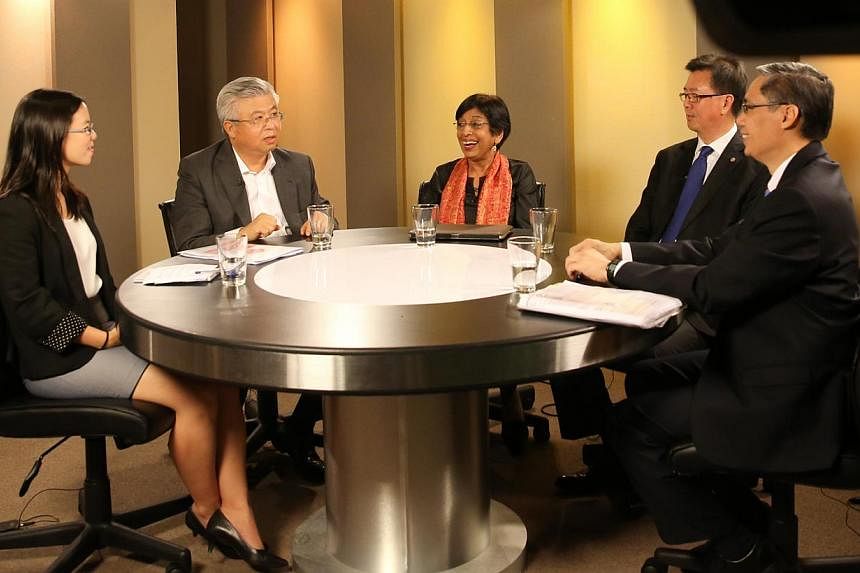The success of the new SkillsFuture initiative depends on individuals, with the support of companies, stepping up to take responsibility for their own upgrading.
Larger firms are also likely to see more immediate benefits than smaller ones.

These perspectives were offered by four panellists at The Straits Times Budget roundtable, which I moderated, at Singapore Press Holdings' News Centre on Wednesday.
The participants, whose expertise ranges from business to ageing issues and career development, lauded the SkillsFuture push in Monday's Budget and were hopeful it will give rise to a culture of lifelong learning.
The scheme, which aims to deepen and broaden people's skills so they can stay relevant in a changing economy, includes subsidies, study awards and revamped training programmes.
Besides subsidised courses for mid-career workers, Singaporeans aged 25 and above will get cash grants from next year to pay for training."SkillsFuture brings the whole thing into the individual's hands... You have to take personal responsibility. You know the money is there for you to actually use it, and you are empowered to do it," said UOB economist Suan Teck Kin.
The Government can act as an "enabler", but "implementers should be individuals like you and me", said Mr Paul Heng, the founder and managing director of NeXT Career Consulting Group.
The key lies in educating Singaporeans about the importance of improving themselves, he added.
"It has to be a continuous journey. It cannot be just once a year or once every two years."
The SkillsFuture programme is also expected to help companies manage their manpower needs.
The Government will support firms which create or enhance in-house talent-development programmes. The scheme will also link ITE and polytechnic graduates with companies that provide on-the-job training and sponsor further studies towards industry-recognised certifications.
However, smaller firms without a structured human resource strategy might not see immediate payoffs from the initiative, noted Mr Thomas Chua, president of the Singapore Chinese Chamber of Commerce and Industry.
"I would say that the immediate beneficiaries (of SkillsFuture) will be the big organisations... They have HR departments, and already have training programmes in place, they can just quickly tap that," added Mr Chua, who is also a Nominated MP and chairman of Teckwah Industrial Corporation.
"But look at the smaller SMEs, especially micro-enterprises. They don't have an HR function or professional HR managers. Many of them are facing tight manpower constraints, so it is not possible to send their staff for training." In the long term, however, chambers and trade associations can help guide smaller firms towards making training a key focus, Mr Chua added.
While it is important that Singaporeans develop deep skills for industries of the future, not all skills upgrading has to be directly job-related, said Dr Kanwaljit Soin, the immediate past president of Women's Initiative for Ageing Successfully (Wings). "If you can imbue the lifelong learning mindset, what courses people take is not as important as the change in their attitude," said Dr Soin, who is also a former NMP.



